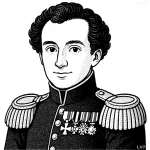“Impossible is a word to be found only in the dictionary of fools.”

- August 15, 1769 – May 5, 1821
- French of Italian descent
- French military officer and emperor
table of contents
Quote
“Impossible is a word to be found only in the dictionary of fools.”
Explanation
In this bold statement, Napoleon Bonaparte dismisses the concept of impossibility, associating it with narrow-mindedness and limited ambition. By saying that “impossible” exists only in the “dictionary of fools,” he implies that those who limit themselves by what they believe cannot be done lack vision and courage. Napoleon, known for his own audacious military and political endeavors, believed that nearly anything could be achieved with the right combination of determination, strategy, and resilience. For him, the word “impossible” was a mental barrier, often used by people unwilling to push boundaries or imagine new possibilities.
This idea resonates strongly in today’s world, especially in fields like innovation, science, and entrepreneurship. Many breakthroughs have come from individuals and teams who refused to accept limitations, challenging conventional wisdom to achieve what others considered impossible. The advancements in technology, medicine, and space exploration, for instance, are testaments to the power of a mindset that defies perceived limits.
Napoleon’s view encourages a fearless approach to challenges, advocating for a mindset that embraces risk and believes in the potential for achievement against all odds. It reminds us that significant accomplishments often begin with a refusal to accept boundaries and that real progress comes from those willing to venture beyond the limits of what seems possible. By removing “impossible” from our vocabulary, we open ourselves to greater ambition, creativity, and a sense of limitless potential.
Would you like to share your impressions or related stories about this quote in the comments section?



